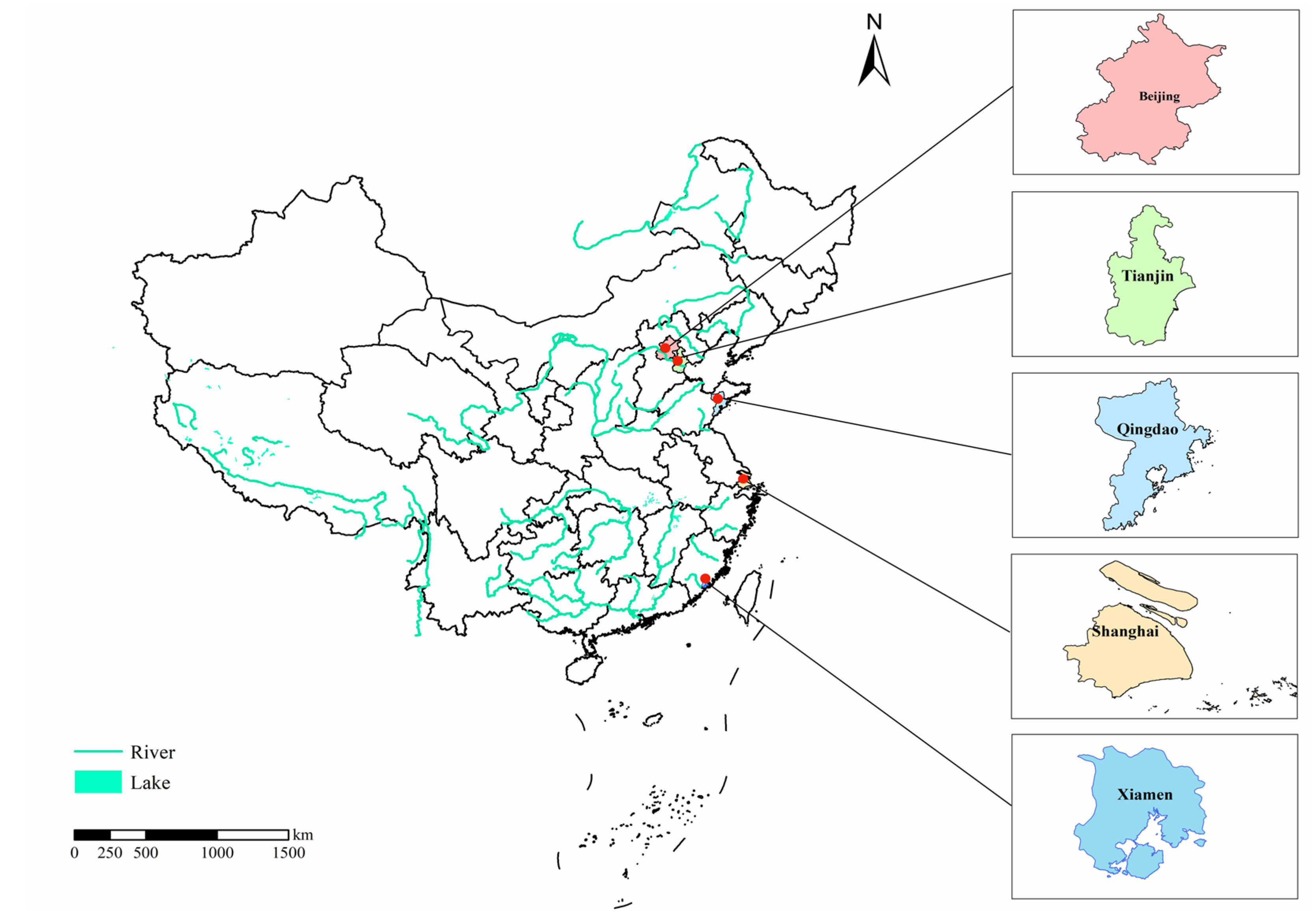| Location: Home > Papers |
| First Author: | HUANG Ruogu |
| Abstract: |
Water scarcity has put pressure on city development in China. With a particular focus on urban and rural effects, logarithmic mean Divisia index decomposition (LMDI) was used to analyze the water footprint per capita (WFP) of food consumption in five East China cities (Beijing, Tianjin, Shanghai, Qingdao, and Xiamen) from 2008 to 2018. Results show that the WFP of food consumption exhibited an upward tendency among all cities during the research period. Food consumption structure contributed the most to the WFP growth, mainly due to urban and rural residents’ diet shift toward a livestock-rich style. Except in Beijing, the food consumption level mainly inhibited the WFP growth due to the decrease in food consumption level per capita in urban areas. Urbanization had less influence on WFP growth for two megacities (Beijing and Shanghai) due to the strictly controlled urban population inflow policy and more positive effects for other cities. The water footprint intensity effect among cities was mainly due to uneven water-saving efficiency. Meanwhile, Beijing and Tianjin have achieved advancement in water utilization efficiency.
|
| Contact the author: | LIN Jianyi |
| Page Number: | 409 |
| Issue: | 1 |
| Subject: | |
| Impact Factor: | |
| Authors units: | |
| PubYear: | JAN 2021 |
| Volume: | 13 |
| Publication Name: | SUSTAINABILITY |
| The full text link: | https://doi.org/10.3390/su13010409 |
| ISSN: | |
| Appendix: |
